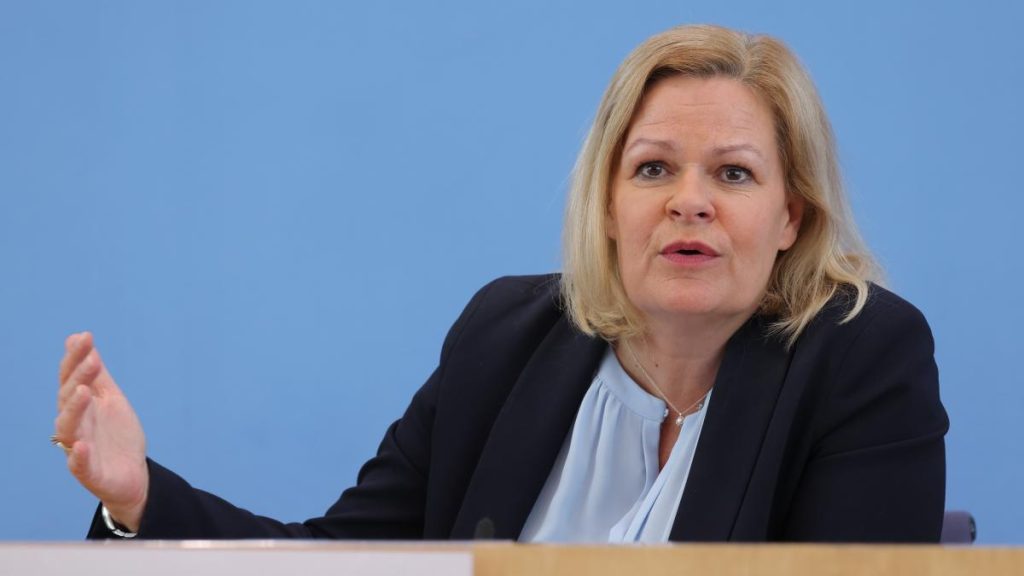The German Ministry of the Interior, led by Nancy Faeser of the Social Democratic Party (SPD), has issued a warning about a disinformation campaign involving fake quotes from German celebrities linked to the 2022 uncovered Russian “Doppelgänger” network. The new tactic of the campaign includes fake quotes attributed to “prominent personalities from the entertainment industry,” a ministry spokesperson told the dpa news agency. Recently, fake quotes have been circulating on social media, falsely attributing statements about Ukraine to actors like Til Schweiger and musicians like Till Lindemann of Rammstein. These fake quotes, known as “Sharepics,” have also been used in Facebook ads. The alleged perpetrators have been placed on the EU sanctions list.
The Ministry is aware that the “Doppelgänger” campaign “remains active and has not only been using the original tactic of imitating websites of reputable media and public institutions for some time,” the spokesperson further stated. The Ministry is monitoring the developments and is in communication with platforms and international partners. The campaign, which was uncovered in 2022, spread fake websites imitating media or institutions in several EU countries. In response, the EU added five organizations linked to the Russian state and seven individuals as responsible parties to the sanctions list at the end of July 2023.
The Ministry’s warning comes as part of ongoing efforts to combat disinformation and propaganda, particularly from foreign actors seeking to influence public opinion. The spread of fake quotes attributed to well-known figures can have a significant impact on shaping public perceptions and opinions on sensitive issues such as the conflict in Ukraine. By alerting the public to the existence of such campaigns and highlighting the use of deceptive tactics like fake quotes, authorities hope to mitigate the impact of these efforts to manipulate public discourse.
The use of social media platforms to disseminate fake quotes and other misleading information highlights the challenges posed by online disinformation campaigns. The manipulation of public opinion through the spread of false information has become a growing concern for governments and tech companies alike, as they work to address the spread of harmful content and protect users from being misled. Efforts to counter disinformation include monitoring and flagging fake accounts and content, as well as working with international partners to identify and disrupt coordinated propaganda efforts.
In response to the warning from the Ministry of the Interior, individuals are advised to be vigilant when encountering potentially fake quotes or other misleading information online. Fact-checking sources and verifying quotes attributed to public figures can help to prevent the spread of false information and reduce the impact of disinformation campaigns. By staying informed about the tactics used by those seeking to manipulate public opinion, individuals can play a role in countering the influence of deceptive campaigns and safeguarding the integrity of public discourse.


